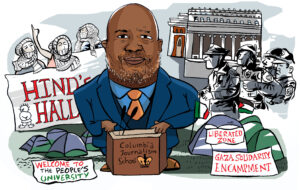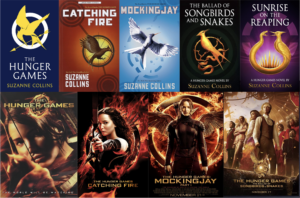
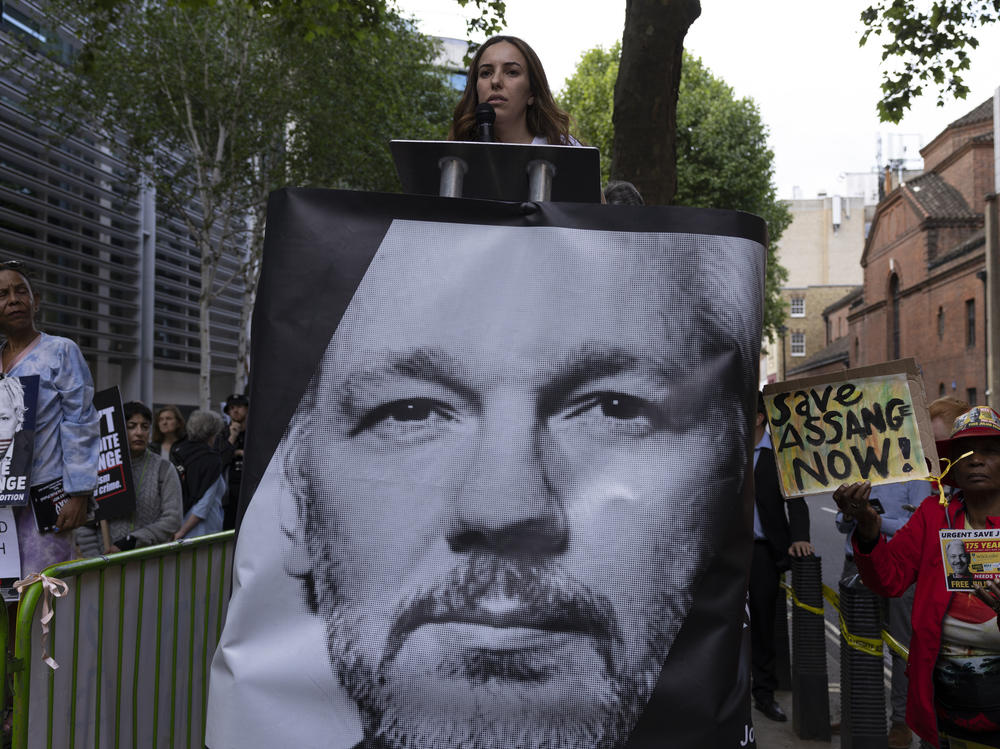
Since 11 April 2019, Julian Assange has been held in the UK’s notorious Belmarsh prison that was once known as Britain’s Guantanamo Bay. This year marks his fourth year inside Belmarsh for revealing the US war crimes in Iraq and Afghanistan. Julian Assange is an Australian journalist and publisher who founded WikiLeaks in 2006. WikiLeaks broke one of the most important stories of the last decades on the war crimes committed in Iraq and Afghanistan when they published a series of leaks by US Army intelligence analyst Chelsea Manning. In this conversation, Suchitra Vijayan talks about the incarceration and persecution of Julian Assange with lawyer and human rights defender, Stella Assange. The conversation was originally held as a Twitter Space session and has been edited for length and clarity.
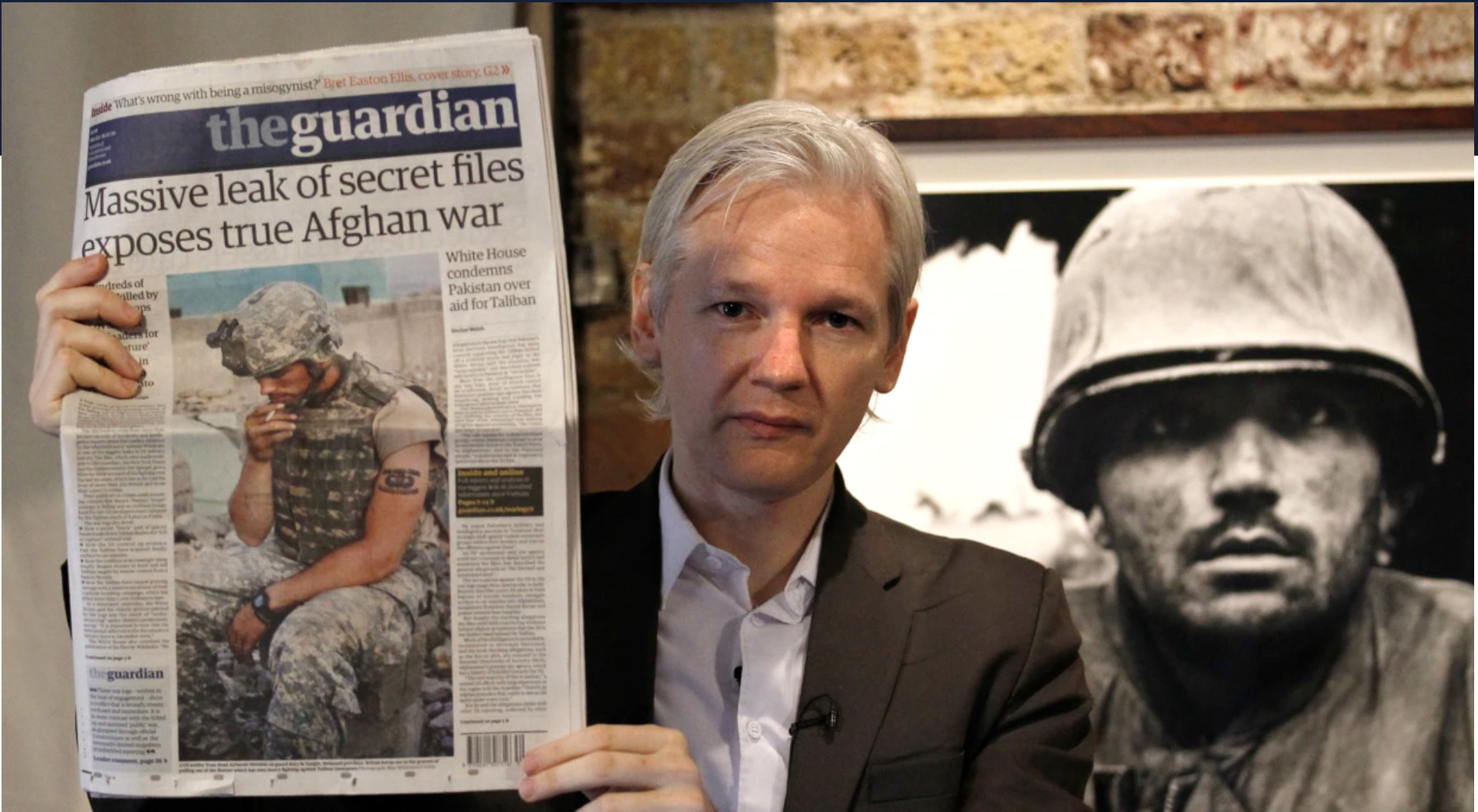
Suchitra Vijayan (SV): Since 11 April 2019, Julian Assange has been held in the UK’s notorious Belmar’s prison that was once known as Britain’s Guantanamo Bay. This year, he begins his fourth year inside Belmar for revealing the US war crimes in Iraq and Afghanistan. Julian Assange is an Australian journalist and publisher who founded WikiLeaks in 2006. WikiLeaks broke one of the most important stories of the last decades on the war crimes committed in Iraq and Afghanistan when they published a series of leaks provided by the US Army intelligence analyst, Chelsea Manning. Joining us today to talk about the incarceration and persecution of Julian Assange is lawyer and human rights defender Stella Assange. Stella, thank you so much for joining us.
Stella Assange (SA): Thank you for having me.
SV: The case of Julian Assange is absurd. Can you start from the very beginning? What is the case against Julian Assange?
SA: The whole case against Julian concerns publications of leaks supplied by an army source, Chelsea Manning, from 2010 and 2011. And they concerned the Afghan war diaries, the Iraq war diaries, the Guantanamo Bay Files, the State Department Cables and the so-called rules of engagement, which were part of the Collateral Murder Video Publication. And these were major publications. They are widely considered the biggest scoops in journalistic history, ever. Charges against Julian came down under the Trump administration, but had been weighed during the Obama administration. There was an investigation into WikiLeaks while Chelsea Manning was undergoing her court martial. She was convicted to 35 years in 2013. And then, on the last day of his administration, Obama commuted her sentence. The charges against Julian are 18 in total. There have been two superseding indictments. The initial charge was under Computer Fraud and Abuse Act, one charge with a maximum sentence of five years. The remaining 17, which are the central part of this prosecution, are charges under the Espionage Act for conspiracy with the source to publish and for receiving, possessing and communicating these documents to the public.
SV: In an interview, you once said that every law and illegality has been used against Assange to keep him behind bars. What is this law, every law and every illegality that’s been used against him to keep him behind bars?
SA: To really understand what has been done to Julian, we have to look at the results that have been obtained, which are to deny him his rights at every stage. And to find administrative excuses for those rights not to be enforced. He has constantly fallen between the cracks, between jurisdictions. There’s always been some excuse why he doesn’t enjoy certain rights. So as an example, Julian is an Australian citizen. He was in the United Kingdom when these publications were made. He is not a US citizen and he was not in the United States [when he was charged], but the United States is applying its Espionage Act beyond its borders to a foreign national, who was in a foreign jurisdiction. Once he is extradited, the United States’ government will argue that because he is not a US citizen, the First Amendment rights do not apply to him. Now, this is gaming – gaming the legal system. And we have seen that happening at every stage. Julian has been deprived of his liberty now for 13 years: he was last a free man on 6 December 2010. On 7 December 2010, he voluntarily submitted himself to the police because there was an international arrest warrant out for him issued by Sweden, within 48 hours of WikiLeaks starting to publish the US State Department cables. We know from reports that the State Department was pressuring its allies to find some way to stop Julian in his tracks since August 2010. A preliminary investigation was opened by Sweden on 20 August 2010. WikiLeaks started publishing US State Department cables on 28 November 2010 and the international arrest warrant came out on 29 November 2010. He has not been a free man since.
There are very good investigative pieces and books that have taken apart the conspiracy. One is “The Secret Power,” a book by investigative journalist Stefania Maurizi. She’s Italian and has won three major investigative awards for it. The book has been published in English at the end of 2022. She has been making Freedom of Information Act requests in the UK, in Sweden, US and Australia and has litigated in each of those jurisdictions to try to uncover what was going on behind the scenes and has obtained very important information. For example, the United Kingdom was pressuring Sweden into stalling their so-called preliminary investigation to refuse Julian his defense and the ability to give his testimony to Swedish investigators. That is why it took Sweden over six years to take his testimony in relation to the so-called preliminary investigation. Also, the United Kingdom pressured Sweden not to drop the case when they took the initiative to do so in 2013. In the book you can see in a documented form authorities gaming the system in order to keep Julian in a state of permanent legal defenselessness and the law being used against an individual for political purposes to arbitrarily detain and silence them and stop their publishing work.
SV: Stefania Maurizi says there has been a propaganda war against WikiLeaks and Julian Assange. What is this propaganda war?
SA: There has been a propaganda war on many different levels, but this really escalated in 2017 under the Trump administration. Mike Pompeo’s maiden speech was all about WikiLeaks, which is something extraordinary. You would expect the Central Intelligence Agency to have other priorities, serious priorities rather than a small publishing organization, but it was because WikiLeaks had published the biggest leak in CIA history called Vault 7. The CIA then took revenge and made it clear that it was going to take down WikiLeaks. There was an investigative piece that came out on Yahoo News Investigations Unit in DC. Three investigative national security journalists – Michael Isikoff, Zach Dorfman and Sean D. Naylor – wrote an 8,000-word investigation into what Mike Pompeo’s war against WikiLeaks meant. And it entailed conversations in the White House about assassinating Julian and Mike Pompeo ordering the CIA to develop what they call “sketches and options” for his assassination. According to this piece, there were very concrete plans to kidnap Julian and rendition him to a third country. And this was at a time when there were no charges against WikiLeaks. We don’t know all the details, but it is extraordinary that the CIA went rogue and decided to use terror tactics on a publisher to silence them out of revenge.
Part of this comprehensive CIA plan to ultimately silence Julian, either through imprisonment or assassination, was to attack his reputation. Everyone who has looked into the CIA understands that the perception, the public narrative, the propaganda wing of the CIA are a very important component of the agency. So there were very significant resources placed on undermining Julian’s and WikiLeaks’ political capital. This is a strategy: if you want to assassinate someone, first you have to assassinate their character. If you want to silence them, you have to be able to do so by reducing the support that they can get by saying: “Well, they’re not worthy of support, right?”
From 2017 onward, we saw a relentless campaign through the media to twist, distort and lie about Julian and try to dehumanize him. And that is why you see absurd statements by people saying: “He is not a good person, but he shouldn’t be treated this way.” You wonder where do people get this from. These are people who don’t even know Julian. This comes out of a perception war on an individual to say that they are not worthy of support. […] There are other examples. In a front page, fabricated story The Guardian claimed that Julian had met Donald Trump’s campaign manager, Paul Manafort, on three occasions prior to Trump’s election, which was a complete and utter lie. And how could it be that the Guardian was duped into running a complete fabrication on the front page of its print edition? Because standards completely dropped when it came to reporting about Julian. Although WikiLeaks and Julian would put out statements and force retractions, everyone knows that retractions are basically fruitless and by the time there was a retraction, there was also already a new, false story. So, this was not a coincidence. It was because there was a concerted campaign to reduce his political capital in order to pave the way for his arrest.
SV: Did The Guardian story ever get retracted?
SA: It got walked back and they inserted things like sources’ claims. The headline was Manafort visited Assange in the embassy on three different occasions, but then they changed it to “sources claim.” It became a kind of ridiculous story that was not news or authority in any way, but the initial news ran like wildfire. The Washington Post wrote two stories about how the Guardian could have gotten it so wrong. They did not retract the story entirely from the website, but as it stands, it doesn’t assert that it was a true event. Other publications tried to verify it, but no one could, of course, because it was absolutely false.
SV: [Audience question from Ghana]. When Joe Biden was the vice president of the United States referred to Julian Assange as a terrorist. A lot of people have talked about the Assange case as a question of press freedom. Can you talk to us about the consequences of naming someone like Assange and other journalists as “terrorists” or calling the press the enemy of the people and about the consequences for the public and for case itself? What does it mean to think about Julian not as a journalist, but as the enemy of the people?
SA: This is extremely dangerous and public officials should not be put in a position where they pronounce whether someone is a journalist. If we make the executive the one who decides who is a worthy journalist, then we are in a very bad place; […] that is a sign of a system that does not have press freedom. Joe Biden – I know what interview you are referring to – was actually put on the spot there. The question put to him was: “Is Julian Assange more of a Daniel Ellsberg figure (Daniel Ellsberg being the whistleblower for the Pentagon Papers) or more of a high-tech terrorist?” And Joe Biden said: “He is more of a high-tech terrorist.” First of all, Daniel Ellsberg is a whistleblower and Julian is a publisher. It is a common mistake that Julian is sometimes compared to Edward Snowden or Daniel Ellsberg or Chelsea Manning. It is a natural comparison however because whistleblowers and now publishers have both been caught in this attack on the truth, on the ability to publish the truth through the Espionage Act charges by US administration, especially from the Obama administration onward.
It is very important to distinguish the role of the publisher from that of the whistleblower. The whistleblower is the one who is in possession of the information and then decides to give it to a publisher. The publisher is the one who receives the information and makes it public. Different considerations apply to these different actors. And the publisher is what Julian is. He engaged in news gathering and that is and always should be a protected activity. What has been done in the prosecution against Julian is to treat the source and the publisher as the same thing and that the source broke the law and therefore, the publisher broke the law too. It is very dangerous to treat the publisher as if they were the ones who broke the law, when all they were doing was to receive, possess and communicate true information of public importance to the public.
SV: There have been a series of op-eds arguing that Julian Assange is not a journalist. Why is this argument being made?
SA: There are different reasons. Julian is undeniably a journalist. He’s engaged in all the activities that journalists engage in: he has written articles; commented on public affairs; analyzed the publications and raw material that WikiLeaks has published. The model that Julian has advanced – what he calls scientific journalism – is based on scientific journals where articles should be peer-reviewed and that means publishing the source material alongside the analysis. It is a common misconception that WikiLeaks just publishes source documents, no analysis and that it publishes everything it gets and does not redact. None of this is true. There is an analysis, it does not publish everything it gets and it does redact information. Julian has been a member of the Journalists’ Union since 2007 in Australia. He also has the International Federation of Journalists’ Union membership card. When this assertion is made that he’s not a journalist, it is just positional and it comes from the fact that when WikiLeaks first started it was a pioneer and transformed journalism into being able to deal with data sets and into introducing cryptography in such a way that it could protect sources so that sources could submit large data sets or submit information in an anonymous way. In 2010 and 2009, these methods were never used by any journalist because you would need a background like Julian had in cryptography, with a deep knowledge of the Internet and how computers worked to understand how sources needed to be protected and how data sets could be analyzed.
Another innovation that Wikileaks brought on was to create partnerships to be able to analyze and publish in a coordinated manner these big data sets. That is why you had Le Monde, Der Spiegel, The New York Times, The Guardian and El Pais in Spain come together and cooperate and that had never been done before […]. There is a paper called the Wikileaksization of the American Press that argues that everyone is now implementing these pioneering methods that Wikileaks introduced. At the time, Julian and Wikileaks were new on the global journalistic stage and suddenly became major players alongside The New York Times, The Guardian and so on. And Julian’s name was far better known among the general population than for example, the editor of The New York Times. There is no doubt that there was journalistic jealousy and rivalry. The argument that he is not a journalist came from a time when the methods were new and innovative – you had the new kid on the block with the biggest scoops in history and was basically laying the conditions of publication. And I think there was a second element whereby those publications thought: “Well, if they do prosecute Wikileaks, they will not prosecute them for journalistic activity.” They made a bet and got it wrong. They got it wrong because the Trump administration then decided to go after Wikileaks through the Espionage Act for news-gathering activity, precisely because they wanted to set a precedent that could be used against the rest of the press. […] The initial five partners have now come together to denounce the prosecution and say exactly this, that the prosecution against Julian is a threat to press freedom because what is criminalizing is precisely journalistic activity.
SV: [Audience questions] When will we hear news about the recent appeals? Can the European Court of Human Rights be involved in the Assange case?
SA: The current state of appeals in the British courts is that Julian has asked to appeal to the High Court. In January 2021, Julian won the extradition case at the district court level on humanitarian grounds. The US then appealed. It moved the goalposts and issued so-called assurances, except they were anything but assurances, which the High Court then accepted and overturned lower court’s decision. That Julian into a position as if he had lost in January 2021 and now it is Julian’s turn to appeal, but there is no automatic right to appeal. The High Court has a discretion to accept or reject the application for leave to appeal, but we do not have a timeline for when the High Court will give the decision. It can come at any point. The High Court does not have any obligation to hear all the grounds; we are waiting to hear back on that front as well. If the High Court does not allow leave to appeal, then Julian could be extradited within a matter of days or a couple of weeks from the moment of the decision.
The status of the European Court of Human Rights is very uncertain at the moment. Successive conservative administrations in the UK have made clear their intention to change the UK’s relationship with the European Court of Human Rights in such a way that make it is quite dangerous for Julian. If the European Court decided after all appeals were exhausted in the UK to implement interim measures, it could theoretically stop the extradition, but the UK government is looking to introduce legislation which would basically do away with the European Court of Human Rights’ ability to impose interim measures and stop an extradition. It is still unclear as the legislation has not been passed yet. And if the appeal goes through at the High Court, then we have this parallel threat that even the European Court of Human Rights may not be able to stop it. So really, the solution for this case is for the Biden administration to drop this absurd prosecution. […]
SV: [Audience question from an Iraqi journalist based in Turkey]. Many Iraqis are grateful for the work that WikiLeaks did in making it absolutely clear that war crimes were committed in Iraq. Many men who were responsible for killing innocent civilians and journalists have not been held accountable while Julian Assange continues to be persecuted. How can we further the defense of Julian Assange and keep the question of the war crimes committed in Iraq and Afghanistan in the news?
SA: I think it is incredibly important to remind everyone all the time that Julian is facing about 175 years in prison – that is the potential sentence. These most important documents he published are like an anatomy of a war in all its detail, day to day. They were to the Iraq and the Afghan war what “the napalm girl” was to the Vietnam war. Up until WikiLeaks published Chelsea Manning’s leaks, there was a disengagement with what was going on in the Middle East. The wars had been going on for about seven years, reports were coming back, but sanitized by the Pentagon.
The Iraq war logs that WikiLeaks published detailed 15,000 individual civilian casualties that had not been accounted for. The Pentagon had claimed that they were not keeping these records, but they were – they were just not disclosing them for PR or funding reasons. The Pentagon’s internal reasoning was these were 15,000 civilian casualties that were unacknowledged, forgotten to history. And the publication of “collateral murder,” the video of an actual war crime, really woke the world up to what was going on in Iraq. The public’s awareness comes through being able to witness – and that is what WikiLeaks did.
One of the biggest issues with the public not being aware of the importance of this case is that they do not necessarily know that Julian is being prosecuted over those publications. For these publications WikiLeaks and Julian have won dozens of human rights and journalism prizes over the years. I was just at the European Parliament, where Julian was one of the three finalists of the Sakharov Price, which is the European Union’s human rights and freedom of thought award.
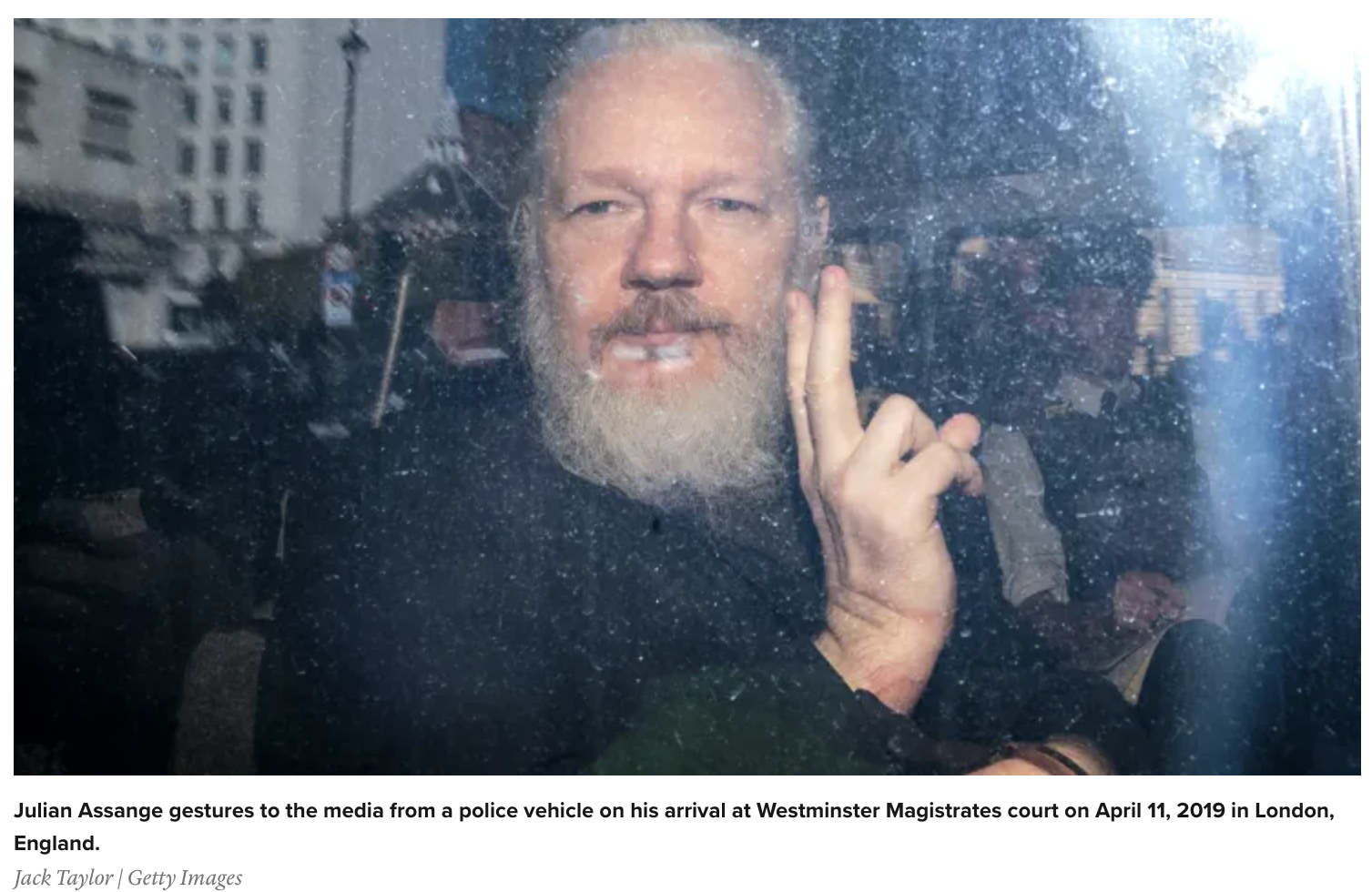
SV: [Audience question from Louisiana] How is Julian Assange doing? He survived over a decade of persecution. We would love to hear how he is doing.
SA: Thank you for those questions. Well, Julian has been in a prison cell since 11 April 2019 and before that, he was in an embassy with no outer space in political asylum for about seven years. So, he has not had freedom for over a decade and progressively his freedom has been restricted to such an extent that he is now in a high security prison in London, but if he is extradited, he would be placed under even greater isolation and restrictions. He is obviously struggling and suffering mentally and physically. You put a person in a cage and it shortens their life. It seems obvious when you are in a zoo with animals. Well, it is the same with people. His life is being shortened for every day that he remains inside a prison cell. And he is not serving a sentence: he is just there indefinitely while the US pursues this monstrous case. At least he can see me and the kids. We have two children. They are five and the youngest one is turning four soon. We can see him once or twice a week and that gives him a lot of emotional support and a sense of normality. When we go to see him, we are in a big prison visiting hall alongside other 40 prisoners or so with their friends and family visiting. We sit at a table. There’s no glass pane between us. We can hold hands across the table. He sits on a red chair. We sit on blue chairs on the other side of the table. The kids can sit on his knees. He can read them stories and And we are together for about an hour. During the COVID lockdown, it was extremely difficult as he was not able to receive any visitors at all, including lawyers. No one at all to visit him for about six months. And when there was an outbreak in the wing, they had to stay inside their cells. That meant days and days and days in the cell in solitary confinement. During that period, one of the people he made friends with died by suicide in November 2020, just three cells down. So, you can just imagine the emotional difficulty and stress Julian is under – fighting for his life and freedom against the US preparing this prosecution in secret for a decade.
Julian is locked up with restricted ability to be able to see his lawyers and has no internet access, obviously. Just as an example, when the US made public their second superseding indictment, it did so by publishing a press release on its Department of Justice website and attaching a PDF to that press release. Julian only read it 12 days later, because that is how long it takes for the prison to process a document. This was the kind of extreme disadvantage that he has in fighting such a malicious case. And he has had to fight with both hands tied behind his back with the US changing the goalposts. In an extradition case where the UK does not even look at prima facie evidence, it just takes the claims by the US prosecutors at face value and we are not able to cross-examine the prosecutors. Again Julian is at a complete disadvantage. When the initial indictment came down, I saw some some legal commentary saying: “Well, of course they won’t extradite because he’s being accused of a political offense and this is outrageous.” But the UK’s press freedom protections are less robust than in the US and the UK courts have so far green-lighted extradition for political offense. If there was an expectation that the UK courts would stop this because of its egregious nature, that is a very dangerous assumption to make. Pressure needs to come from within the United States for the administration to drop this prosecution. There have been some political developments recently where the Australian government for the first time in 12 years said publicly that it wants Julian to be released, that it wants the US to end this case. Having the Australian Prime Minister say this publicly makes a massive difference, but that change of position has not yet rendered any results because Julian is still in prison. We hope that the Australian government and the Australian Prime Minister will continue to demand Julian’s freedom. This is a political case and it is extremely dangerous from a legal perspective, but ultimately it will be dropped if there is enough public outcry, especially from the journalistic class. It has to build into a constant and increasing clamor for Julian’s release.
SV: What is the status of WikiLeaks as an organization? Can you talk to us about ways in which public can support WikiLeaks and ways for us to continue making sure that important information is given to the public, including protection for whistleblowers?
SA: Well, WikiLeaks is a small publishing organization and obviously with its founder and publisher in prison, a lot of resources and efforts are directed at freeing Julian. The editors-in-chief, Kristen Crobson and Joseph Farrell, have been travelling to Latin America and it is a very positive sign that the President of Colombia, the President of Brazil and others are receiving them and doing publicity around these meetings and they are saying publicly that they back Julian’s freedom. That is a major political move from. That is where a lot of WikiLeaks’ efforts are. You can go to WikiLeaks.org – There is a donate button and a submit button and those are active.
SV: We got hundreds of messages in support of your brave work and of Julian Assange. Stella, thank you so much and it is just truly remarkable in terms of what you accomplish every day to fight for Julian Assange. Telling the truth is a revolutionary act. Thank you so much.



